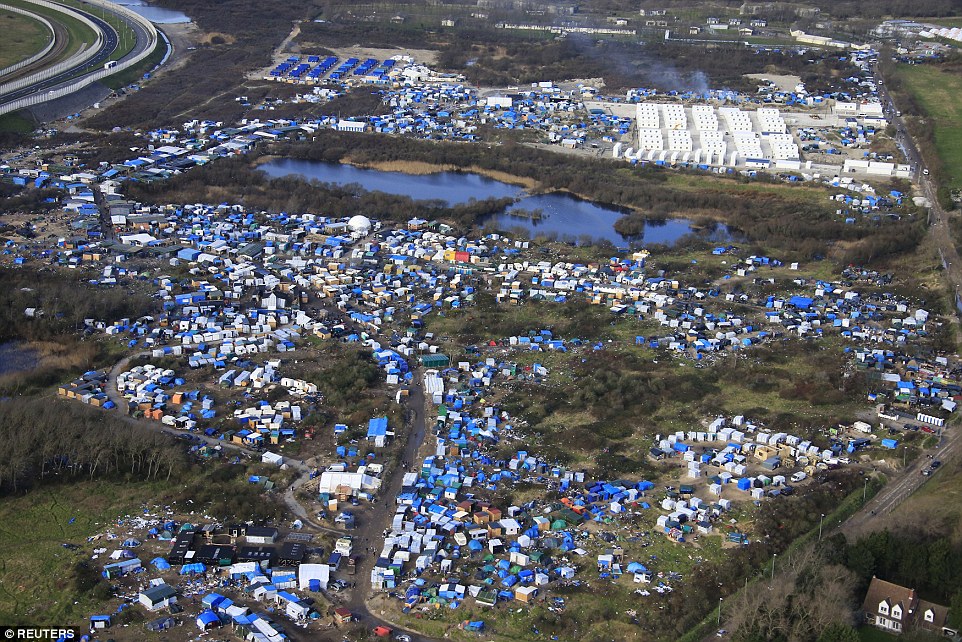
As of October 26th, a refugee camp that housed close to 7,000 migrants attempting to gain entry to the United Kingdom was dismantled in Calais. Despite housing just a fraction of the 77,000 residents at the refugee camp in Zaatari, Jordan, this closure is significant, and is a microcosm of the migrant crisis gripping Europe. The Calais camp’s dismantling epitomizes the ugly conditions faced by those in migrant camps, as well as the apathy of France and Britain in dealing with the issue.
History has a way of repeating itself. The camp in Calais was originally established by the Red Cross in 1999 and was designed to accommodate 500 people. The camp population grew well past its capacity and had 2,000 people in it by the time it was closed in 2002. Over a decade later, bulldozers have returned to the port town on the northwestern coast of France to further displace the displaced.
The conditions in the Calais camp were atrocious. Sanitation and sewage were non- existent, which led to rampant dysentery and other diseases not associated with France since the Middle Ages. The camp itself was divided geographically by ethnicity, with Afghani and Pakistani refugees grouped together while those from Eritrea and Ethiopia gravitating along the same lines. In July, a brawl between different camp factions that involved as many as 200 individuals claimed the life of one man. The frustration and hysteria in these camps are plain to see, and with the relative inaction of European states, it is not hard to see why.
Residents of the camp at Calais were attempting to gain entry into the UK through both legal and illegal means. The legal method involves filling out forms and waiting years in a camp knowing that there is healthy chance that the submitted application will be denied. The illegal method involves risking death by electrocution via fences that would bar those from entering the Eurotunnel, a 50 km long rail tunnel connecting France to Britain.
The reasoning behind travelling to Britain instead of France varies from human to human, but two tend to dominate. The first being that the migrant may have family that is already settled within the UK, which provide a social network to rely on upon arrival. This is regarded by many as the best way to ensure a path to integration for migrants, whether it is through the family providing housing and stability or knowing the right places to look for work.
The second reason stems from a perception among migrants that the UK is a soft landing spot for finding work. Migrants believe that the UK has more lenient labour laws than those in France that facilitate entering the job market for those who successfully claim asylum. There is also widespread belief amongst migrants in there being a greater opportunity to gain employment in England’s black market than there is in France. These notions are backed more by perception than reality, but is a pull factor for Britain nonetheless.
Regardless, these beliefs fan the flames of xenophobia among some Brits who believe that those seeking entry into the UK are not refugees but welfare-sucking vampires looking to drain the greatest country on God’s green earth of its precious resources. Nevermind the fact that Britain built this reputation on the wealth it created by sending migrants abroad to look for greater economic opportunity.
In dismantling the Calais camp, France rendered this debate moot, as most of the displaced migrants will be assimilated and processed by the French authorities. For those in the camp who were looking to reunite with family in the UK, this is devastating. For those who are bearing witness from afar, the attitude that these people should be grateful that they are being given an opportunity to become citizens in Western Europe reigns supreme.
There is no easy answer on how to react to this move by French authorities. It was objectively unacceptable for France to allow migrants to live in the appalling conditions that existed at the camp. The destruction of the camp shows that the government is taking direct action to address the humanitarian crisis taking place within its borders. But the move also represents a robbing of agency for individuals who intended to claim asylum in Britain.
Refugee camps have to be temporary, and in lockstep with the nature of the migrant crisis, the dismantling of the Calais camp was not ideal. Despite this, the action taken by France shows that it is not going to let refugees undergo inhumane living conditions. It would not have come to this if Britain had taken the “open door” approach to migrants that Germany did. There are millions of migrants in Europe, and it is time for the “civilized world” to take genuine policy action to learn how they are going to accommodate these people. Hopefully, future actions taken will not be as heavy-handed as the events in Calais.

